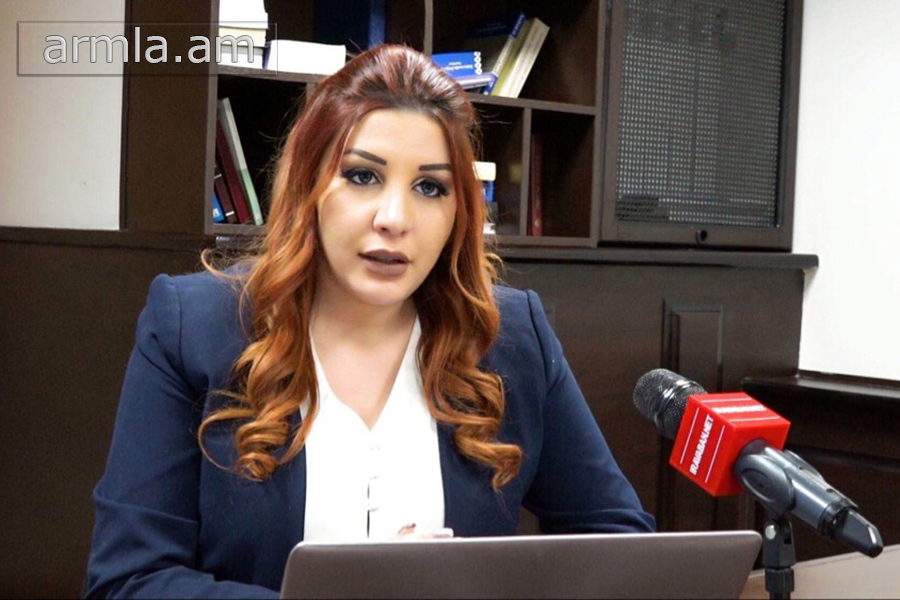
Ms. Mariam Zadoyan, Anti-Corruption Expert of the CSO Anti-Corruption Coalition of Armenia, has responded to Transparency International’s statement.
“On 7 May, 2019, in my interview to the independent, professional news website Iravaban.net, among other issues, I also touched upon the expert opinion of Anti-Corruption Expert Mr. Valts Kalnins, made on the proposal of Transparency, related to the establishment of the anti-corruption body in Armenia. In this regard Transparency International Anti-Corruption Center has issued a statement trying to deny the truthfulness of the facts in the interview.
Transparency International Anti-Corruption Center in its statement presented a brief biography of Valts Kalnins, trying to present him as an independent expert. I regret that Transparency International is again trying to maneuver, rather than show the whole picture, especially the fact that V. Kalnins is a member of Transparency International. Staying true to my principles to speak reasonably, I quote the invitation drawn up by Transparency International, which states that Kalnins is a member of Transparency International.
 Valts Kalnins is an Assistant Professor at the University of Latvia, with PhD in Political Science. He has 20 years of experience teaching academic courses on political corruption, lobbying, parliamentary government and political theory. For 14 years he worked as senior researcher at the Centre for Public Policy PROVIDUS in Riga, Latvia. Since 2004 he cooperates with OECD on issues related to integrity and anticorruption. He was involved in international projects in Armenia implemented by GIZ and the Council of Europe providing consultancy on public service ethics and declarations on assets and income. Since 2000 he is a member of Transparency International Latvia.
Valts Kalnins is an Assistant Professor at the University of Latvia, with PhD in Political Science. He has 20 years of experience teaching academic courses on political corruption, lobbying, parliamentary government and political theory. For 14 years he worked as senior researcher at the Centre for Public Policy PROVIDUS in Riga, Latvia. Since 2004 he cooperates with OECD on issues related to integrity and anticorruption. He was involved in international projects in Armenia implemented by GIZ and the Council of Europe providing consultancy on public service ethics and declarations on assets and income. Since 2000 he is a member of Transparency International Latvia.
This proves that Transparency International, defending the unilateral conclusions of V. Kalnins, member of their network, is actually in a situation of a conflict of interests, as it protects its own organization’s interests, and promotes its own vision of fighting corruption, under the veil of an “international independent” expert, which can mislead not only the society, but also the state bodies. I believe, it is worth mentioning again that, in my opinion, Transparency International leads the discussions in a wrong direction. The primary issue here should have been the discussion of the institutional anti-corruption model that is necessary for the Republic of Armenia and its citizens rather than defending the expert.
Perhaps the facts I had presented were reasoned.
As to the counterargument related to the slideshow in Valts Kalnins’ speech delivered at the event on March 12, and the expert opinion that he developed a month later referring to deficiencies of the Universal Anti-Corruption Agency Model and the increase of the number of advantages of the Multiple Anti-Corruption Agencies is due to the fact that later, the opinions expressed by the stakeholders during the above mentioned event, were included in the expert opinion. It must be stated that it devoid of any logic; it is not objective and does not reflect the reality that has taken place during the expert discussion. It is noteworthy that during the discussion a number of participants and experts, including the MP from opposition, have presented a number of arguments as the advantages of the Universal Anti-Corruption Body. And from this perspective, the subjectivism and bias, which Mr. Valts showed at the stage of development of conclusions, is at least strange for me.
Summing up, I would like to note that such incomplete presentation of facts casts doubts about the level of conscientiousness of the institution that presents it. Moreover, before addressing other people for ethics and correctness, it is necessary to reconsider own approaches and practices, without overrating own knowledge, and subordinate the latter to the rules of ethics. Such statements that contain only emotional aspects and are lacking serious professional counterarguments cannot contribute to the competition of ideas and opinions as well as the formation of an atmosphere of solidarity. The knowledge and experience of professionals is not measured directly by the number of years worked, but rather by the level of analytical expertise and argumentation in such situations. I am not going to repeat what has already been said in the previous interview about the shortcomings in the expert opinion drawn up by Mr. Kalnins, because the interested individuals can read the previous interview.
Let me add that this is my last comment on this topic.”
